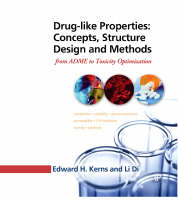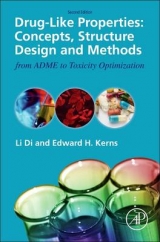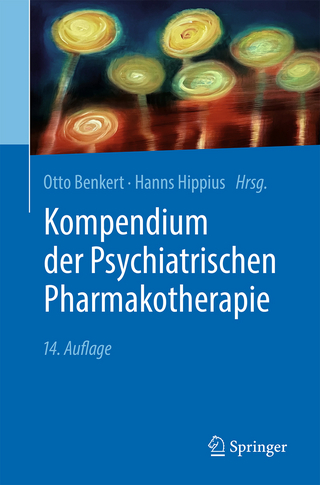
Drug-like Properties: Concepts, Structure Design and Methods
from ADME to Toxicity Optimization
Seiten
2008
Academic Press Inc (Verlag)
978-0-12-369520-8 (ISBN)
Academic Press Inc (Verlag)
978-0-12-369520-8 (ISBN)
- Titel erscheint in neuer Auflage
- Artikel merken
Zu diesem Artikel existiert eine Nachauflage
Describes how properties affect in vivo pharmacological activity and impact in vitro assays. This book reviews various methods for the screening, diagnosis and analysis of drug properties. It provides guidance on property fundamentals, effects, structure-property relationships, and structure modification strategies.
Of the thousands of novel compounds that a drug discovery project team invents and that bind to the therapeutic target, typically only a fraction of these have sufficient ADME/Tox properties to become a drug product. Understanding ADME/Tox is critical for all drug researchers, owing to its increasing importance in advancing high quality candidates to clinical studies and the processes of drug discovery. If the properties are weak, the candidate will have a high risk of failure or be less desirable as a drug product. This book is a tool and resource for scientists engaged in, or preparing for, the selection and optimization process.
The authors describe how properties affect in vivo pharmacological activity and impact in vitro assays. Individual drug-like properties are discussed from a practical point of view, such as solubility, permeability and metabolic stability, with regard to fundamental understanding, applications of property data in drug discovery and examples of structural modifications that have achieved improved property performance. The authors also review various methods for the screening (high throughput), diagnosis (medium throughput) and in-depth (low throughput) analysis of drug properties.
Of the thousands of novel compounds that a drug discovery project team invents and that bind to the therapeutic target, typically only a fraction of these have sufficient ADME/Tox properties to become a drug product. Understanding ADME/Tox is critical for all drug researchers, owing to its increasing importance in advancing high quality candidates to clinical studies and the processes of drug discovery. If the properties are weak, the candidate will have a high risk of failure or be less desirable as a drug product. This book is a tool and resource for scientists engaged in, or preparing for, the selection and optimization process.
The authors describe how properties affect in vivo pharmacological activity and impact in vitro assays. Individual drug-like properties are discussed from a practical point of view, such as solubility, permeability and metabolic stability, with regard to fundamental understanding, applications of property data in drug discovery and examples of structural modifications that have achieved improved property performance. The authors also review various methods for the screening (high throughput), diagnosis (medium throughput) and in-depth (low throughput) analysis of drug properties.
Li Di is an Associate Research Fellow at Pfizer, USA
Preface; Introductory Concepts; Physicochemical Properties; Disposition, Metabolism and Safety; Methods; Specific Topics; Answers to Problems; Appendix I: General References; Appendix II: Glossary.
| Erscheint lt. Verlag | 20.3.2008 |
|---|---|
| Verlagsort | San Diego |
| Sprache | englisch |
| Maße | 184 x 260 mm |
| Gewicht | 1380 g |
| Themenwelt | Medizin / Pharmazie ► Medizinische Fachgebiete ► Pharmakologie / Pharmakotherapie |
| Medizin / Pharmazie ► Pharmazie | |
| ISBN-10 | 0-12-369520-1 / 0123695201 |
| ISBN-13 | 978-0-12-369520-8 / 9780123695208 |
| Zustand | Neuware |
| Haben Sie eine Frage zum Produkt? |
Mehr entdecken
aus dem Bereich
aus dem Bereich
Arzneimittelverzeichnis für Deutschland (einschließlich …
Buch | Hardcover (2024)
Rote Liste Service GmbH (Verlag)
109,00 €
Englisch für Apotheker und PTAs
Buch | Spiralbindung (2024)
Kohlhammer (Verlag)
32,00 €



